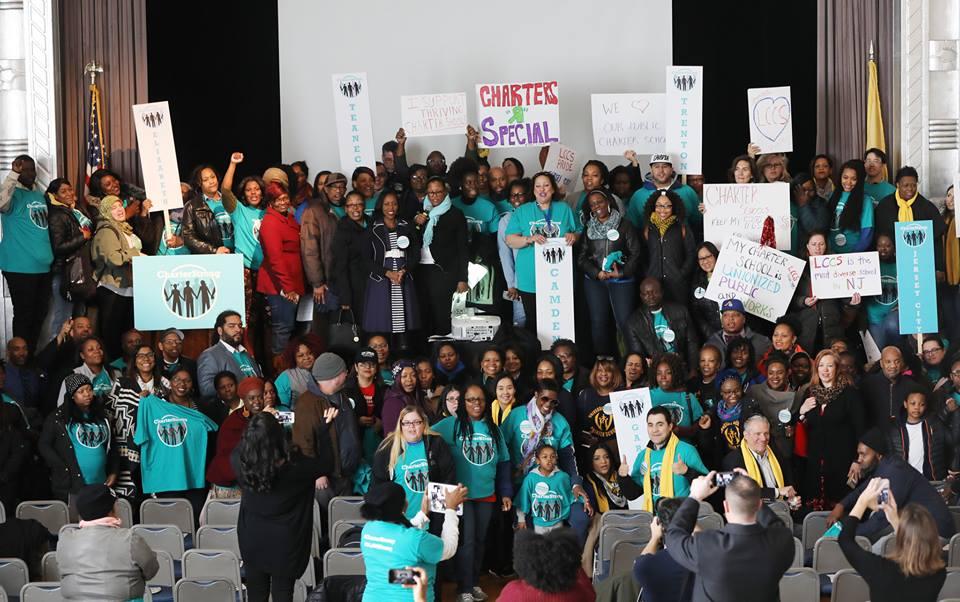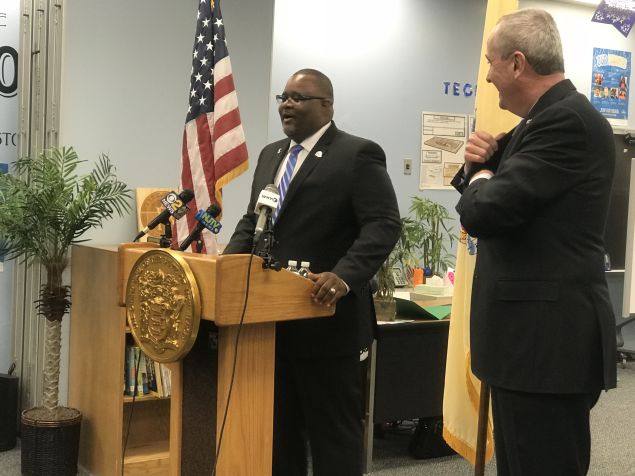
Not So Fast with the “We” Word, Trenton Superintendent McDowell. You’re Leaving Out the Parents.
August 16, 2018
Ed Comm. Repollet Goes For the “Soft Bigotry of Low Expectations” but State Board of Education Refuses to Play – For Now.
August 22, 2018Voices from the NJ Parent Summit: “When Everyone Dresses the Same, The Focus is on Learning.”
Ubaidullah Jackson, who just turned seven years old, peers up at me with undisguised curiosity. I’m here to interview his mom, Shati Gerald, about why and how she has molded an ambitious academic track for her gifted son and so he’ll have to be satisfied with access to his mom’s smartphone and a promise for a snack at the closing brunch at the 2018 NJ Parents Summit.
Shati is a social services coordinator for senior citizens and lives in Absecon, N.J. She has two college degrees, a BA in Psychology and MA in Urban Education Guidance and Counseling, both from Norfolk State University in Norfolk, VA. Her neighborhood is zoned for Pleasantville Public Schools, a long-troubled district. According to the most recent DOE data, only 29 percent of third-grade boys in traditional Pleasantville elementary schools reach proficiency levels on the state standardized tests in reading.
Shati was determined that her son be adequately challenged throughout his public school career. From babyhood she knew that he was very bright; he currently reads and does math well beyond his grade level.
“I don’t think the Pleasantville school system is what I was looking for,” she explained. “Pleasantville wouldn’t offer him that challenge. I also wanted him to be involved in a STEM program, which was offered at the charter schools.”
Once Ubaidullah reached school age, she filled out applications for two charters: the Atlantic Community Charter School and the International Academy of Atlantic City (which is actually located in Egg Harbor). She chose the latter because of its proximity to her job but decided during his second year there that he would be better served at the less convenient charter school.
I asked her how the transition from one charter school to another has been for her son. “It’s been great,” she said. “He’s one of the top kids academically in the first grade and I’m also very happy with the afterschool program, which accommodates working parents.” In the beginning he did act up a bit as he adjusted “but they reached out to me. There’s a great rapport with parents.”
Currently Shati is focused on finding a balance for Ubaidullah between straight academics — he previously attended a Saturday STEM program at Atlantic Cape Community College where he took a junior robotics class coordinated by Dr. Basilyn Bunting— and non-academic activities, like sports. “As he grows,” she tells me, “he needs to adjust to disciplined schedules. With football, for example, you need discipline, you need to exercise, you need to collaborate, make new friends, learn sportsmanship, engage in friendly competition, and be part of a team. I always tell him, ‘there’s no ‘I’ in team.’ All this will go to his success as an adult and becoming a balanced young man.”
I asked her if she anticipated making a different public school choice for her son as he gets older. “As long as we’re in Atlantic County,” Shati said, “he’ll stay at Atlantic Community Charter School. There’s a long waiting list and I was truly blessed to get him in.”
What does she want readers to know on this final morning of the NJ Parent Summit, I asked?
“I want the readers to know that the principal and teachers embraced us with open arms,” she replied. “As far as afterschool programs, they understand that I’m a working mom and I will be there by 6 pm. He does his homework there, then has a snack, then other enrichment activities. They’re talking about adding karate, yoga, and STEM too. Their main goal is mine: the success of the child, his development, his behavior.”
Do you find any of that “drill and kill” rigidity stuff often spouted about charter schools, I asked?
“I haven’t experienced that,” she said. “I like that all the children wear uniforms because there are some children with designer clothes and some children who can’t afford. Uniforms alleviate that inequity. Everyone looks the same so the focus is on learning.”




